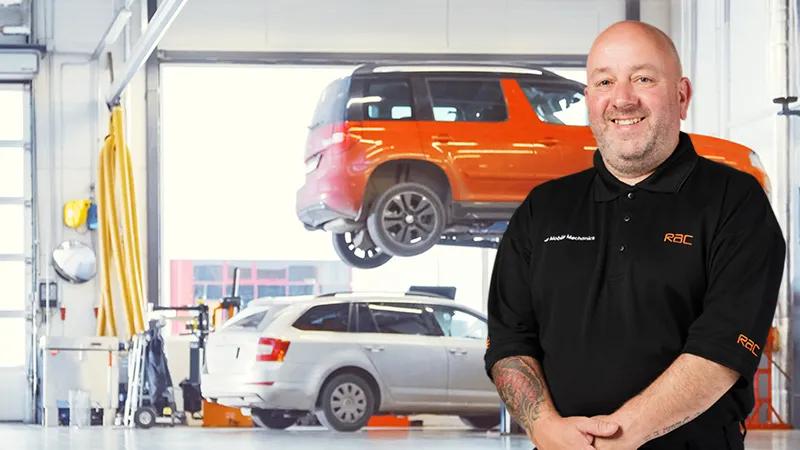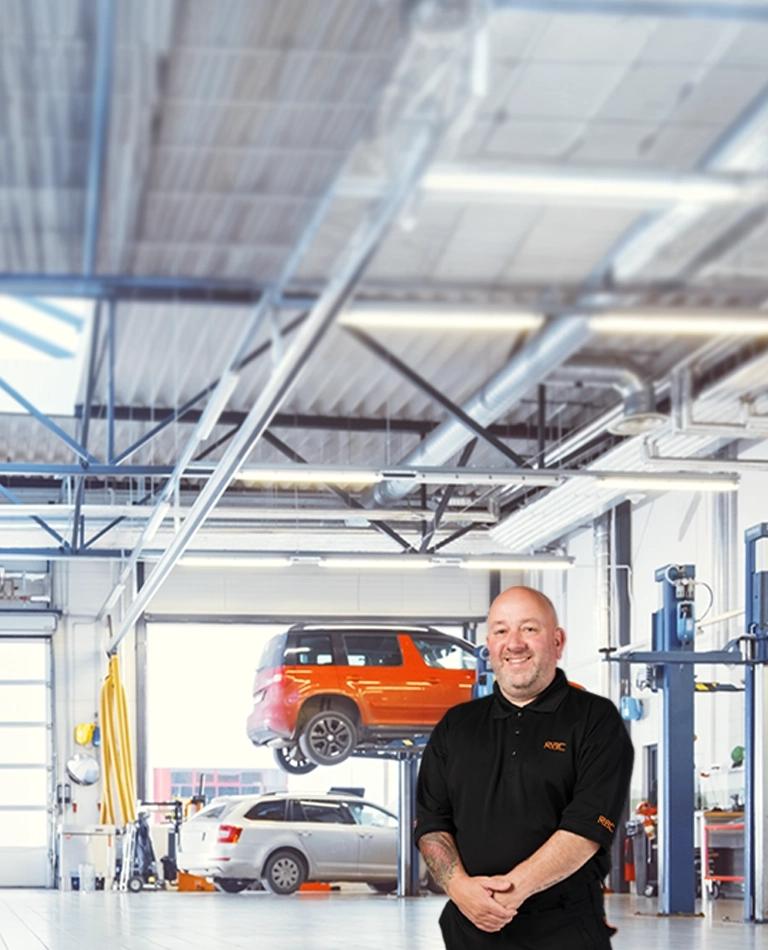

Book a diagnostic
A mechanic will check your car for faults and talk you through any repairs you might need. There are various ways to check for faults, which could include a physical examination or plugging in to check your car’s onboard engine management system.
Introduction
Had a road accident and worried about having to fix your car? There’s no need to worry – we've got your back. This article will steer you through the ins and outs of accident repairs, helping you get your vehicle back on the road with confidence.
What is an accident repair?
Accident repair is all about getting your car back in shape after a collision. Whether it’s a small scratch or major damage, mechanics and garages work to restore your vehicle to its original condition – or as close as they can get it.
What are common accident repair types?
Accident repairs vary depending on the situation. Here are some common types of repairs:
- Dent repair: Removing minor dents and dings from your car’s body. Paintless dent repair (PDR) can be used to fix small dents. This doesn’t affect your paintwork.
- Paint repair: Repainting scratched or damaged areas to match the original colour. This can range from small touch-ups to full-body resprays.
- Frame straightening: If your vehicle’s frame is bent or twisted, specialised equipment is used to straighten it back to its original specifications.
- Bumper repair: Fixing or replacing damaged bumpers, which can be dented, cracked, or completely broken in an accident.
- Glass replacement: Replacing broken or cracked windows and windshields. This is essential for both safety and visibility.
- Mechanical repairs: Fixing or replacing damaged mechanical components such as the engine, suspension, brakes, or its exhaust system.
- Panel replacement: Replacing damaged body panels like doors or the bonnet. This is often necessary when panels are severely dented or rusted.
Accident repair is essential for getting your car back in top shape after a crash or incident. Knowing about common types of repairs, costs, and insurance details can help make everything smoother. Plus, staying on top of regular maintenance and quick fixes will keep your car running safely for longer!
Frequently Asked Questions on accident repair
It’s unlikely. Insurance usually covers repairs from accidents, theft, or vandalism. Regular maintenance and wear-and-tear are generally not included.
It depends on the damage. Small dents and scratches might cost a few hundred pounds. Big repairs, like replacing panels or repainting, can run into thousands.
You can usually choose any shop you like. Just keep in mind that if it’s not on your insurance’s list, you might have to cover any extra costs.
It depends on the damage to your car. If the car is safe, you can drive it until repairs are done. But if the damage is serious and risks your safety, don’t drive!
First, make sure everyone is safe. Call emergency services if needed. Swap insurance details with the other driver. Take photos of the scene. After that, let your insurance company know to start your claim.
Most repair shops offer a warranty on their work. This usually covers parts and labour for a certain time. Be sure to ask about the warranty details before you start.
Good repairs shouldn’t hurt your resale value too much. But if your car’s been in a few accidents or the repairs were shoddy, it might drop in value. Always choose a repair shop you can trust to keep your car’s value up.
If this happens, let the garage know. Most places will fix any problems and make sure you’re happy. If this doesn’t work, have a chat with your insurance company.
This depends on the damage to your car. Small repairs might be done in a few days. Large fixes could take weeks. For a clear idea, ask your garage for an estimate.
Filter by


